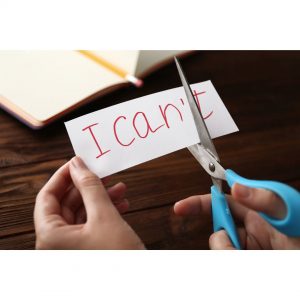
To Be or Not to Be: Helping the Struggling Student
August 15, 2022There are those of you out there who are dealing with a struggling student. I can sympathize with you both from the perspective of having been a struggling student myself and being the father of a couple of children who struggle with school. As homeschooling parents, my wife and I have wondered if some of our children were ever going to learn a certain subject because of various learning challenges. I think we can all agree that teaching, especially when dealing with students with various kinds of learning disabilities or learning styles is not for the faint-hearted.
In my own childhood, I still remember being told by more than one teacher saying things like, “This is about as much fun as crawling on broken glass” or “I’d rather jump off of a bridge than teach this to you again”. Maybe it was because out of the 12 different schools I attended as a child, I was never in one place long enough for any teacher to understand the learning challenges I faced let alone be able to spend the time helping me up with my peers. Maybe it was because my parents worked long hours away from home or that both parents and my teachers expected the other one to help me. Maybe it was because I was terribly shy, introverted, and embarrassed. Maybe it was because I have a unique learning style that requires me to understand “Why” before I seem to learn “How” or “What”.
So why would I want to be so transparent about my personal struggles in school? The easy answer is that hopefully, the things I learned may help you and your children. God also uses this process to keep teaching me. You see, I’m still a student, as I hope you are. Together, I think we can learn something that changes our lives, not just our children’s.
Failure is a Learning Opportunity
The first thing I want to encourage you in is that all is not lost. There is hope. Don’t give up the proverbial ship just because you’re facing a storm. You are the captain of the ship, and it’s up to you to take the helm and sail through, no matter what. Facing a challenge doesn’t make it impossible. Even if you or your child failed at it before or will again. It just makes it a challenge! We actually learn the most from our failures.
This principle was seared into me in the military. The U.S. Marine Corps doesn’t just bestow their coveted title of Marine only to recruits who were athletes or Honor students. They “endlessly” tested us with all kinds of pretty rigorous physical, mental, and emotional challenges that pushed us beyond limits and caused us to “fail”. In fact, I stunk at just about everything the first time through, and failure cost us every time. Yet every time we fell down, it gave us another chance to struggle back up to our feet and attempt it again, and again, and again until we got it right. how to correct our mistakes, then we did it again and again, and again until we not only got it right, but we became really good at whatever the task was. We stumbled, blistered, moaned, and struggled our entire training, but the only true failures were those who quit.
students. They “endlessly” tested us with all kinds of pretty rigorous physical, mental, and emotional challenges that pushed us beyond limits and caused us to “fail”. In fact, I stunk at just about everything the first time through, and failure cost us every time. Yet every time we fell down, it gave us another chance to struggle back up to our feet and attempt it again, and again, and again until we got it right. how to correct our mistakes, then we did it again and again, and again until we not only got it right, but we became really good at whatever the task was. We stumbled, blistered, moaned, and struggled our entire training, but the only true failures were those who quit.
If you haven’t caught my point yet, it’s that the struggle is OK. You and your kids learn from it. If the barrier seems too high, too wide, too deep, then keep going until you discover the right key to help your child. Let them learn from their failures. Don’t just keep pushing them through so that they graduate without really having the skills and knowledge they need in life.
The Homeschooling Investment
Homeschooling is not some magic pill that creates brilliant children by morning. What it does do though is that it can roll back the tide on a host of accumulative challenges your children would have or did face in the public education system —  issues such as peer pressure, bullying, unwanted gender and sexuality indoctrination, negative cultural problems, the possibility of disengaged or politically handicapped teachers, and a host of other things. Former Education Secretary Arne Duncan acknowledges that at least 82 percent of public school children can’t even meet the standard in Math or English. Here’s the good news for you though. The National Home Education Research Institute states that while the average public-educated child only scores in the 50th percentile, the average homeschooler scores 15-30 percent higher on tests regardless of their parent’s level of education. Now, I wonder, could it be that those differences directly correlate to the healing effects that your love, dedicated care, and investment of time can have on your child? (Sarcasm intended.)
issues such as peer pressure, bullying, unwanted gender and sexuality indoctrination, negative cultural problems, the possibility of disengaged or politically handicapped teachers, and a host of other things. Former Education Secretary Arne Duncan acknowledges that at least 82 percent of public school children can’t even meet the standard in Math or English. Here’s the good news for you though. The National Home Education Research Institute states that while the average public-educated child only scores in the 50th percentile, the average homeschooler scores 15-30 percent higher on tests regardless of their parent’s level of education. Now, I wonder, could it be that those differences directly correlate to the healing effects that your love, dedicated care, and investment of time can have on your child? (Sarcasm intended.)
Your child doesn’t have to be a genius in every subject, but personally investing in them and teaching them determination and means of dealing with challenges helps them become stronger and smarter. Teaching is not just preparing children to momentarily memorize for that quiz or SAT, but training your children to be men and women of character who love God and can learn and think critically. Don’t think that’s as important as testing well? A few years ago I was reminded of this when I was sent to a conference where Fortune 500 companies were looking to recruit various levels of leaders to work within their organizations. Instead of recruiting people with impressive titles and university degrees, they wanted leaders who had already faced challenges and came out of them with increased wisdom, character, work ethic, determination, and a willingness to learn.
Conclusion
Right from the first paragraph, I mentioned a few of my own personal challenges with learning, especially when I was younger. I had a whole host of challenges that could have led to disaster. Instead, I had three different people who noticed those challenges over the years and invested in me for the short periods of time they taught or mentored me. By the grace of God, because of their investment and encouragement, the course of my life was radically changed. I’ve been to places, seen things, done things, and met people I never would have without both the challenges and the investment that God directed for my life. And, as crazy as it sounds, even though I’m still terrible at Math, and need an editor to check my punctuation, I’ve had three amazing professions that required me to know the “Why” so I could help others figure out the “How” and “What”. Things you would not believe if I told you, but that hopefully, I can use to help you on your journey.
In this first article of several on “Learning from Failure”, I want to leave you with this challenge. Determine that no matter what, you will not quit in the storm. Your children are depending on you. Even if everything seems like a battle and you’ve been knocked off your feet, climb back up, wipe the salt out of your eyes; grab the ship’s wheel again, and keep your course. Someday your children will thank you that you held fast in the storm for them. Don’t despair in the darkness of the storm. Hold fast and sail on O’ Captain. The Dawn will come.
More About the Author:
 Gabriel is a former homeschooled missionary kid and homeschooling father who adores his wife, children, and grandchildren. He is currently rebuilding a 130-year-old homestead, writing a historical fiction book on character for young people, and mentoring young men. He is a former U.S. Marine Corps Combat Correspondent, Army National Guard Photographer, and U.S. Army Deputy Public Affairs representative and holds a Bachelor of Arts in Communication. He lived in Central America during Junior High and served on military short and long-term assignments across the U.S. and in half a dozen countries, including Iraq during his military career. Besides his deep faith and his family, his passion is writing and developing young men into capable steward leaders.
Gabriel is a former homeschooled missionary kid and homeschooling father who adores his wife, children, and grandchildren. He is currently rebuilding a 130-year-old homestead, writing a historical fiction book on character for young people, and mentoring young men. He is a former U.S. Marine Corps Combat Correspondent, Army National Guard Photographer, and U.S. Army Deputy Public Affairs representative and holds a Bachelor of Arts in Communication. He lived in Central America during Junior High and served on military short and long-term assignments across the U.S. and in half a dozen countries, including Iraq during his military career. Besides his deep faith and his family, his passion is writing and developing young men into capable steward leaders.
Additional Homeschool Resources
Tips for Teaching Your Struggling Student
30 Encouraging Homeschool Quotes
Rest for the Weary Homeschool Parent
5 Ways to Keep Homeschool Enthusiasm Going
Latest Posts

Guest Post by Gabriel Morse For several years, I sat for long hours every day behind one of those battleship gray desks in a windowless, dull, gray office. The pay was enough to take care…
Read more >
This post is sponsored by Little Monsters Universe. I'm Tina Salmanowitz, an advocate for homeschooling and science education. With over a decade of experience as a science educator (in class…
Read more >
This post is sponsored by Time4Learning. Before the pandemic, it was business as usual for Boca Raton resident Nikki Warris. Her two daughters, 5-year-old Natalie and 8-year-old Lexi were…
Read more >

